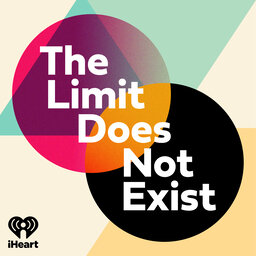Office Hours: Tell Me About Yourself
How do you explain who you are and what you do in a way that makes sense to others — and more importantly, to you? We’re here to help you present your myriad strengths as the highly valuable package that they are, by identifying your personal brand, translatable skills, and even what the heck to put on your website. So whether you’re gearing up to change careers, move into a new industry, or you just want to feel comfortable and confident about all of the pieces of your story, you’ve come to the right office.
Learn more about your ad-choices at https://www.iheartpodcastnetwork.com
 The Limit Does Not Exist
The Limit Does Not Exist


